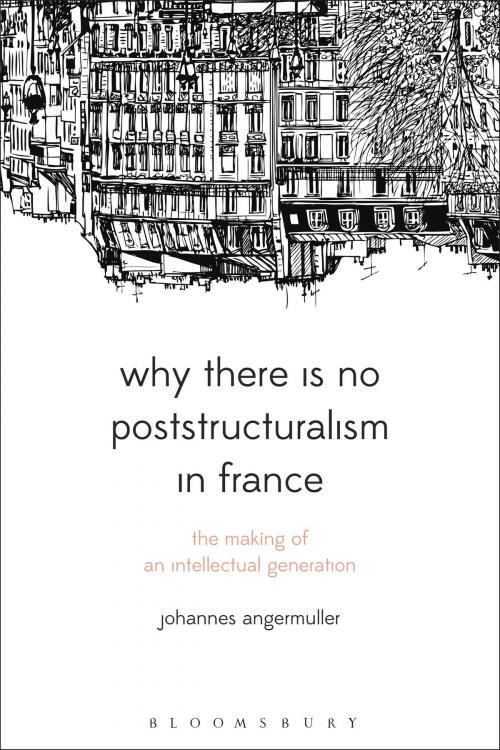Why There Is No Poststructuralism in France
The Making of an Intellectual Generation
Nonfiction, Religion & Spirituality, Philosophy, Modern, Social & Cultural Studies, Social Science| Author: | Professor Johannes Angermuller | ISBN: | 9781474226325 |
| Publisher: | Bloomsbury Publishing | Publication: | October 8, 2015 |
| Imprint: | Bloomsbury Academic | Language: | English |
| Author: | Professor Johannes Angermuller |
| ISBN: | 9781474226325 |
| Publisher: | Bloomsbury Publishing |
| Publication: | October 8, 2015 |
| Imprint: | Bloomsbury Academic |
| Language: | English |
French thinkers such as Lacan and Derrida are often labelled as representatives of 'poststructuralism' in the Anglophone world. However in France, where their work originated, they use no such category; this group of theorists – 'the poststructuralists' - were never perceived as a coherent intellectual group or movement.
Outlining the institutional contexts, affinities, and rivalries of, among others, Althusser, Barthes, Foucault, Irigaray, and Kristeva, Angermuller – drawing from Bourdieu's concepts of cultural capital and the academic field – insightfully explores post-structuralism as a phenomenon. By tracing the evolution of the French intellectual field after the war, Why There is No Poststructuralism in France places French Theory both in the specific material conditions of its production and the social and historical contexts of its reception, accounting for a particularly creative moment in French intellectual life which continues to inform the theoretical imaginary of our time.
French thinkers such as Lacan and Derrida are often labelled as representatives of 'poststructuralism' in the Anglophone world. However in France, where their work originated, they use no such category; this group of theorists – 'the poststructuralists' - were never perceived as a coherent intellectual group or movement.
Outlining the institutional contexts, affinities, and rivalries of, among others, Althusser, Barthes, Foucault, Irigaray, and Kristeva, Angermuller – drawing from Bourdieu's concepts of cultural capital and the academic field – insightfully explores post-structuralism as a phenomenon. By tracing the evolution of the French intellectual field after the war, Why There is No Poststructuralism in France places French Theory both in the specific material conditions of its production and the social and historical contexts of its reception, accounting for a particularly creative moment in French intellectual life which continues to inform the theoretical imaginary of our time.















